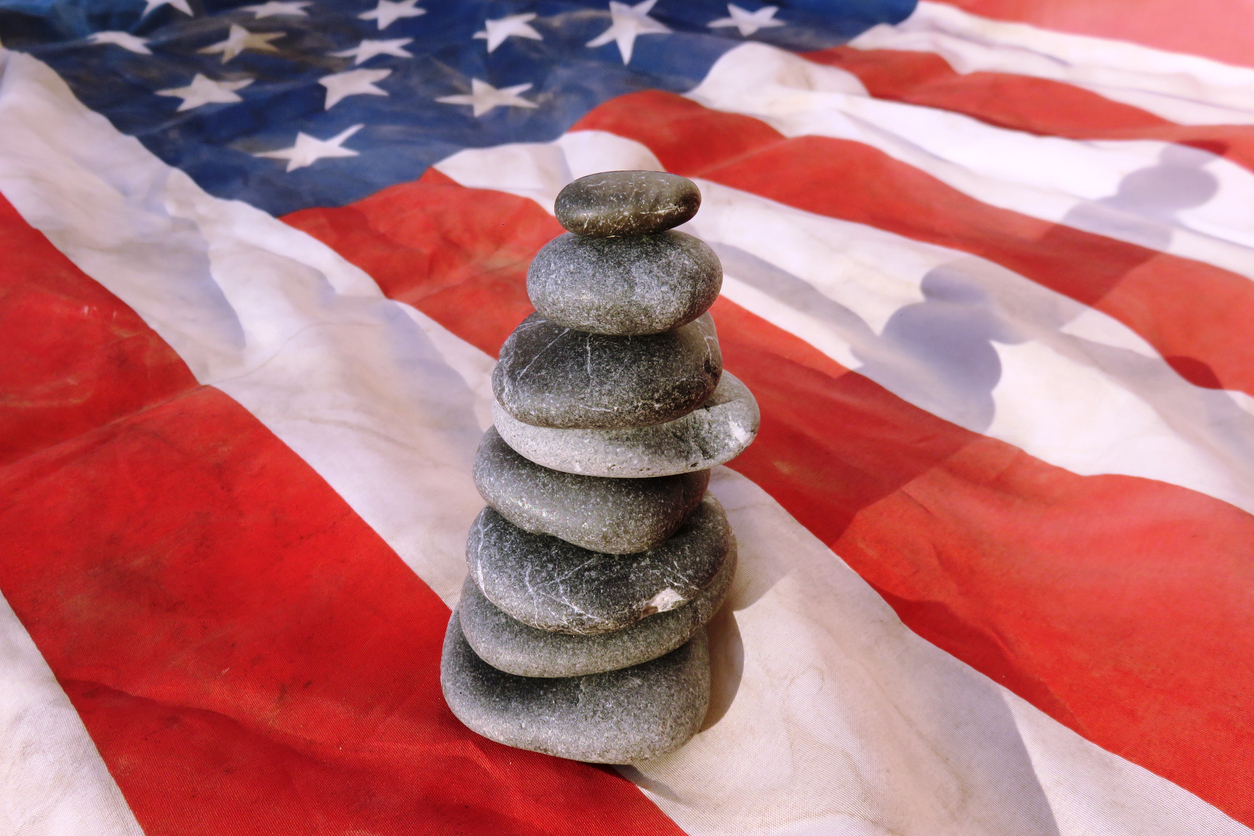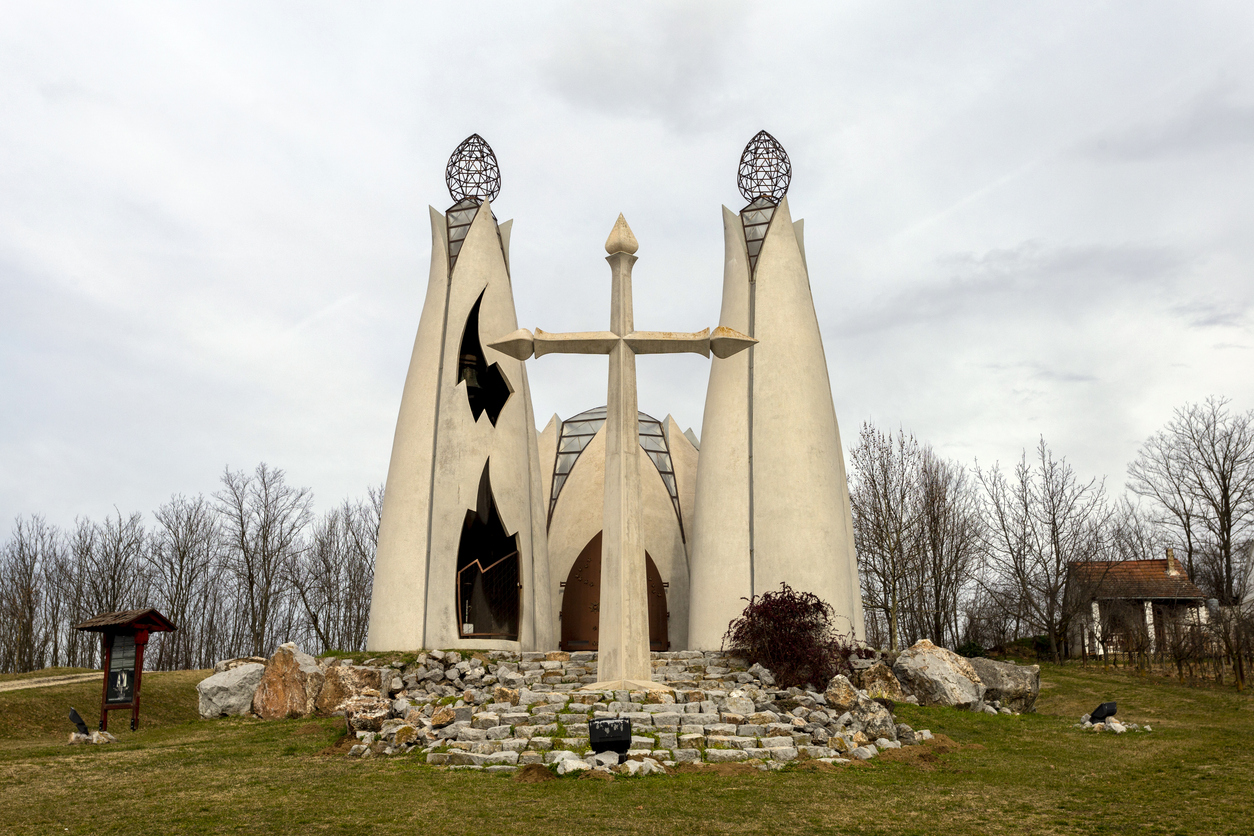Tag: Civil Resistance

Tunisian Unions Support the Arab Spring
*By Adam Fefer
Time Period: 2016-2023
Location: Poland, especially Warsaw
Main Actors: Polish Episcopal Conference
Tactics
- General strikes
- Protective Presence
- Assemblies of protest or support
Between 1987-2011, Tunisia was an autocracy ruled by Zine El Abidine Ben Ali. Under Ben Ali, opposition parties, civil society activists, and journalists were repressed, harassed, exiled, and tortured. Tunisian elections were unfree and unfair: Ben Ali either ran for the presidency unopposed, placed restrictions on opposition candidates, or used legal instruments and state media to guarantee his re-election. Tunisia’s woeful economy and authoritarianism motivated the self-immolation of street vendor Mohamed Bouazizi in 2010. This prompted mass protests throughout the country that became the Tunisian or “Jasmine” revolution, leading to Ben Ali’s resignation as well as Tunisia’s partial democratization. Tunisia’s revolution diffused throughout the Middle East and North Africa, helping to inaugurate the wider “Arab Spring.”
The Tunisian General Labour Union (UGTT), founded in 1946 and representing over a million workers, served as a key pillar of support for Ben Ali’s regime. However, it walked a fine line between support and opposition. On the one hand, UGTT is closely connected to the Tunisian people: it played a key role in the 1952-56 anti-colonial struggle and has consistently opposed the imposition of neoliberal economic policies. On the other hand, Ben Ali successfully co-opted many of UGTT’s top leaders into the state apparatus, showering them with privileges and blackmailing those who threatened his authority.
At the beginning of Tunisia’s 2010 protests, UGTT’s secretary general met with Ben Ali and pledged continued union support. However, as the Ben Ali regime increasingly repressed and killed protesters --including many union members-- UGTT leaders opted for a more confrontational policy. For example, in January 2011, UGTT began authorizing local unions to call strikes as they saw fit, which led to a huge growth in strikes across the country. As protests grew, so too did defections among Tunisian governing elites as well as among the security forces, many of whom refused to harm protesters.
UGTT’s well-established infrastructure enabled it to play an indispensable role in Tunisia’s revolution. For one, its leadership helped organize and coordinate strikes between the various national, regional, and local union branches. As a multi-sector union, UGTT brought together factory workers, bureaucrats, physicians, lawyers, human rights activists, and even the unemployed. During the revolution, UGTT offices across Tunisia served as a strategic meeting place for those organizing protests as well as a refuge for protesters who sought to avoid state violence. Protesters would often begin activities outside UGTT’s headquarters in the capital Tunis. Another crucial function served by UGTT was to give the protests a more explicitly political framing: as Yousfi (2021) shows in interviews with protesters, UGTT helped transform popular demands from improving the economy to Ben Ali’s outright resignation.
UGTT’s pro-democracy actions did not cease after Ben Ali’s resignation. To the contrary, it continued to push for resignations among the rest of Ben Ali’s authoritarian government that remained after he fled to Saudi Arabia. UGTT helped ensure order and peace during a period of instability. The assassination of several Tunisian politicians in 2013 threatened to undo Tunisia’s democratic gains. In response, UGTT formed the “Tunisian National Dialogue Quartet” with three other civil society organizations. Together, the Quartet helped accelerate the adoption of Tunisia’s 2014 democratic constitution as well as the holding of democratic elections. The Quartet was later awarded the 2015 Nobel Peace Prize.
Despite the democratic gains made during and after the Jasmine revolution, democracy has been fragile in Tunisia. In 2015, incumbent president Kais Saied invalidated the new constitution, dissolved parliament, and dismantled the Constitutional Court. Some observers worry that UGTT has lost some of its revolutionary zeal and failed to attend to workers’ interests in democracy. Others insist that despite UGTT’s shortcomings, there are few entities that can effectively challenge Saied’s authoritarianism.
Democracy organizers in the US can learn much from the example set by Tunisia’s UGTT. For one, UGTT’s coalition against the Ben Ali dictatorship was quite broad, including not only wealthy and poor workers but also those without work. Mobilizing across income brackets is crucial at a time when autocrats in the US and elsewhere make populist appeals to those for whom the economy is not working. Second, the Tunisian case highlights the importance of strategic imperatives in pro-democracy action: UGTT leaders may or may not have been committed to democracy as a moral issue, but what was crucial was that they feared losing the Tunisian people’s support. Similarly in the US, politicians and other elites who support autocrats must understand the potential risks --electoral, economic, or otherwise-- of doing so. Relatedly, the Tunisia case shows that a history of compliance with autocrats does not preclude pro-democratic action: many UGTT leaders had been co-opted in the Ben Ali regime yet still found ways to distance themselves from it in service of democracy. Finally, despite the weakening of unions in US national politics, they are not irrelevant. Many of the problems felt most acutely by ordinary Americans are driven by economic concerns that unions may help to address. The recent wave of strikes across the US and renaissance of union organizing is a testament to their continuing importance for democracy.
Where to Learn More
- Beinin, J. (2020). Arab Workers and the Struggle for Democracy. Jacobin.
- Benn, S. (2024). The Power of Labor: Tunisia’s trade union and the Arab Spring. theSquare.
- Chayes, S. (2014). How a Leftist Labor Union Helped Force Tunisia’s Political Settlement. Carnegie Endowment for International Peace.
- Cordall, S.S. (2022). Tunisia’s Powerful Labor Union Is Thwarting President Saied’s Ambitions. Foreign Policy.
- Yousfi, H. (2023). Organization and organizing in revolutionary times: The case of Tunisian General Labor Union. Organization, 30(4), 624-648.
You can access all the caselets from the Pillars of Support Project here.

Brazilian Religious Leaders and Democratic Backsliding
*By Adam Fefer
Time Period: 2019-2023
Location: Brazil, especially Rio de Janeiro
Main Actors: Brazilian Catholic Church, Brazilian Evangelical pastors (e.g., Henrique Vieira) and civil society groups (e.g., Novas)
Tactics:
- Declarations by organizations and institutions
- Signed public statements
- Vigils
Brazil became less free and democratic during Jair Bolsonaro’s presidency (2019-2022). Bolsonaro’s campaign featured hate speech directed at racial and gender minorities, election disinformation, and nostalgia for Brazil’s military dictatorship (1964-85). While in office, journalists and civil society activists were harassed and faced violence while Bolsonaro threatened Supreme Court justices and denounced independent checks on his power. Brazil’s disastrous COVID-19 response was heightened by Bolsonaro’s antidemocratic efforts to suppress public data about cases and fatalities.
Bolsonaro won the 2018 election in large part because of support from Evangelicals (31% of the population), 70% of whom voted for him. Meanwhile, about half of Catholics (50% of the population) voted for him. (Bosonaro is Catholic but was re-baptized by an Evangelical pastor in Israel in 2016.) Brazilian society is conservative: large majorities of voters support the death penalty, laws prohibiting gay marriage and abortion, and life imprisonment for serious crimes. And Evangelicals are the most conservative segment of Brazilian society, often espousing fundamentalism and supporting far-right politicians, especially since 2014. Bolsonaro’s rhetoric --emphasizing patriarchy, Brazil’s infestation by Marxists, and impending apocalyptic battles between good and evil-- resonated with religious voters, many of whom were willing to overlook Bolsonaro’s authoritarianism.
Religious actors made statements and took actions that challenged Bolsonaro’s anti-democratic efforts. Because Evangelicals supported Bolsonaro in such large numbers, many pro-democracy efforts were undertaken by Catholics. Catholic involvement was both surprising and encouraging in light of norms enforced from the Vatican downward to Brazilian priests that discourage explicit politicking. In addition, perhaps half of Brazilian Catholics identify with the Catholic Charismatic renewal, which emphasizes other-worldly goods over worldly political involvement. What follows is an analysis of some salient parts of this campaign by religious actors.
In July 2020, over 150 Brazilian Catholic bishops signed a “Letter to the People of God,” which denounced the Bolsonaro administration’s non-transparent handling of COVID-19 and its actions “approaching totalitarianism…encouraging acts against democracy…[and its] repugnance for…freedom of thought and the press.” The letter, which invoked biblical support for social and economic justice, provoked much backlash. This included pro-regime Brazilian bishops as well as conspiracy theorists like Olavo de Carvalho, who denounced the signees as “communists [and] satanists.”
In January 2021, over 375 Catholic and Evangelical leaders signed a statement calling for Bolsonaro’s impeachment. The statement denounced Bolsonaro’s constitutional violations (for example, of citizens’ right to health) and mishandling of COVID-19. It was presented to Brazil’s Chamber of Deputies, the legislature’s lower chamber. (Bolsonaro was not impeached although many such petitions --secular and religious-- were submitted.) And in October 2022, more than 15 religious groups signed a document criticizing Bolsonaro’s theocratic messaging as well as his demonization of women, Afro-Brazilians, LGBT+ people, and Indigenous communities. These documents may have persuaded some religious voters to abandon Bolsonaro ahead of the 2022 election.
Progressive Evangelicals, who are marginalized in Brazilian politics and society, have also taken actions in furtherance of democracy. Much of Brazilian popular news media, which is owned and controlled by conservatives, seeks to portray Evangelicalism as homogeneous. The progressive Baptist pastor Henrique Vieira worked during Bolsonaro’s presidency to contest this narrow portrayal. Vieira, who was a local politician in Rio de Janeiro between 2012-16, made statements denouncing Bolsonaro’s theocratic messaging and “genocidal” handling of COVID-19. And in 2022, he won a seat in Brazil’s Chamber of Deputies. Given the conservatism among many Brazilian (Evangelical) voters, however, pro-democracy candidates who lack Vierira’s influence likely face an uphill battle in running for office.
In another example of progressive Evangelical organizing, the group Novas Narrativas Evangélicas (New Evangelical Narratives) held a vigil in October 2022 in Rio. Novas, which formed in late 2021, denounced Bolsonaro’s racist and exclusionary rhetoric. However, the vigil was attended by just 30 people.
Finally, religion played a key role in the January 8, 2023 Brazilian Congress attack. Around 5,000 Brazilians attacked federal buildings in the capital, Brasília, to disrupt the transfer of power from Bolsonaro to President Lula da Silva. Much as in the US, Christian participation --both pastors and laity-- and symbolism were highly visible during the attack. The National Conference of Brazilian Bishops responded by condemning the “criminal attacks on the democratic rule of law.” It is unclear to what extent religious actors helped prevent the attack from morphing into a military coup, which many rioters expressed as their goals. But the Conference’s condemnation was clear and forceful.
Brazilian religious actors’ campaign against Bolsonaro’s backsliding was strengthened by the administration’s ineptness and growing unpopularity. Many Evangelicals gradually deserted Bolsonaro, owing to their frustration with his handling of COVID-19 and the economy. According to Statista, ahead of the first round of Brazil’s 2022 election, only 49% of Evangelicals and 27% of Catholics intended to vote for Bolsonaro. Although Bolsonaro consolidated more religious support ahead of the second round, Lula da Silva defeated Bolsonaro partly because he worked to mobilize religious voters, for example affirming the sacredness of life and freedom of religious expression.
Democracy organizers in the US can learn much from the outspokenness of Brazilian religious leaders. In particular, Catholic bishops denounced Bolsonaro’s backsliding quite forcefully. In addition, pro-democracy priests and pastors in the US, especially those who eschew “worldly” affairs, can learn from the willingness of dissidents like Henrique Vieira who engage in formal politicking. Finally, the glaring parallels between the US’ January 6th attack and Brazil’s January 8th attack offer lessons for democracy organizers. Brazilian bishops were unequivocal in their condemnation of the attack as anti-democratic, especially in comparison with those US bishops who were silent or who merely condemned the violence.
Where to Learn More
- Alves, L. (2021). “Brazilian religious leaders want Bolsonaro impeached over COVID-19.” National Catholic Register.
- Alves, L. (2022). “Catholic groups give Bolsonaro poor marks on Brazil social programs.” National Catholic Register.
- Alves, L. (2023). “Catholic leaders condemn attacks on Brazil's Congress, high court, presidential palace.” National Catholic Register.
- Lima, E.C. (2020). “In openly criticizing Brazil's president, 152 bishops spur anger, controversy.” National Catholic Register.
- Lima, E.C. (2023). “Christians represented significant faction of capital rioters in Brazil.” Religion News Service.
- Ionova, A. (2022). “Brazil’s Evangelical Leftist.” Americas Quarterly.
- Malleret, C. (2022). “Progressive Evangelicals Reject the Bolsonarization of Churches.” Nacla.
- Smith, A.E. (2018). “For Latin America’s Evangelicals, Bolsonaro Is Just the Start.” Americas Quarterly.
You can access all the caselets from the Pillars of Support Project here.

Teachers in Hungary Oppose Democratic Backsliding
*By Adam Fefer
Time Period: 2016-2023
Location: Poland, especially Warsaw
Main Actors: Polish Episcopal Conference
Tactics
- Assemblies of protest or support
- Human chains
- Destruction of Government Documents
Hungarian democracy has significantly eroded since Prime Minister Viktor Orbán’s Fidesz party won the 2010 elections. Owing to its parliamentary super-majority, Fidesz has frequently changed the constitution and Hungary’s electoral law in its favor. Meanwhile, opposition legislators have been barred from introducing new bills or amendments. Fidesz has gerrymandered electoral districts and created fake parties to overwhelm its opponents (Kornai 2015). Hungarian news media are extremely favorable to Fidesz and its vision of illiberal Christian nationalism. Orbán denounces “Western” human rights as a ruse for national suicide and Islamic fundamentalism.
The Orbán administration has centralized its control over Hungary’s education system. Much as in the US, many right-wing Hungarians see schools and universities as incubators of left-wing ideologies relating to gender, race, and the economy. Under Fidesz, the autonomy of schools and teachers to choose their curriculum has been greatly narrowed. Teachers who have gone on strike demanding fair pay have been fired, arrested, and violently repressed by security forces. In addition, they have been denounced as a cover for George Soros and his progressive agenda, a common anti-semitic charge by Orbán and Hungarian elites.
Five teachers were fired in September 2022 for going on strike. The next month, tens of thousands of teachers, parents, and students staged multiple protests. Their goals broadened from restoring the dismissed teachers specifically to increasing educators’ salaries and resisting Orbán’s authoritarianism more generally.
The Hungarian protests showcased very creative forms of resistance. For example, students formed a human chain through the capital and blocked a key bridge for several hours. They marched to the Interior Ministry building, throwing garbage at a life-sized effigy of the head minister and burning official letters sent to teachers warning them not to protest. And they chanted “We are not afraid” and “Orbán get out.” The October protests were some of Hungary’s largest since the end of communism in 1989.
Hungarian civil society has played a key role in sustaining the protesters. An organization called Tanítanék (meaning “I wish to teach” in Hungarian) was founded in 2016 by Kata Törley, one of the teachers fired in September 2022. Tanítanék works to improve teachers’ income and right to strike. It has enjoyed popular success through digital organizing and the building of mailing lists, the latter of which is over 90,000 large. Tanítanék has used its funds to hire permanent staff, support striking teachers and those engaged in civil disobedience who have been arrested, and create a media portal.
Teachers, parents, students, and citizens have done much to raise awareness of Fidesz’s autocracy and centralization over the education system. However, the erosion of democratic freedoms and active repression of protesters has complicated efforts to organize an effective response to the Orbán regime. Fidesz’s control over nearly all branches of the state has weakened both opposition parties and civil society more generally.
In spite of Hungary’s worrying prognosis, US democracy organizers can draw several lessons from the efforts of Hungarian teachers. For one, the teachers built a large and diverse coalition that included students, parents, and concerned citizens, whose views cut across political and ideological divides. In other words, people from all walks of life either attend school or have school-aged children. US democracy organizers could benefit from thinking in terms of such broad shared interests. Second, the Hungarian teachers deployed a host of creative and bold tactics, from throwing garbage to blocking bridges to burning threatening letters from the state. US organizers need not confine their work to e.g., encouraging voting for pro-democracy candidates, but can draw on a wealth of tactical options.
Where to Learn More
- Faludy, A. (2022). Hungary’s Education Protests of Limited Threat to Orban. Balkan Insight.
- Kornai, J. (2015) Hungary's U-turn: Retreating from Democracy. Journal of Democracy, 26(3): 34-48.
- McNeil, Z. (2024). Lessons on Challenging Authoritarianism from the Hungarian Teachers Movement. Waging Nonviolence.
You can access all the caselets from the Pillars of Support Project here.

The Quakers Advance Democracy in the US Civil Rights Movement
*By Adam Fefer
Time Period: 1956-1968
Location: Montgomery & Birmingham, AL; Prince Edward County, VA; Washington, DC; Cape May, NJ; New Delhi, India
Main Actors: American Friends Service Committee, Bayard Rustin.
Tactics
- Publishing Dissenting Literature
- Newspapers and Journals
- Marches
This caselet is about Quakers’ contributions to the civil rights movement, which advanced US multi-racial democracy. The civil rights movement’s causes are well known: the southern states were authoritarian enclaves where African Americans were disenfranchised and faced legalized discrimination. Meanwhile, northern states had informal segregation in housing, education, and employment. Despite their small size --just over 75,000 US members today-- Quakers served as an important pillar in undoing the US’ authoritarian, exclusive status quo.
Quakers, also known as the Religious Society of Friends, are a Christian denomination noted for their emphasis on direct inward revelations, styles of worship that enable such revelations (e.g., “quaking” silently in place), and forms of social “witness” or activism, especially pacifism and conscientious objection. Much Quaker activism is formulated at “Yearly Meetings,” which are decentralized decision-making organizations.
Quakers’ social witness has earned them international acclaim: Quakers Emily Greene Balch and Philip Noel-Baker won the Nobel Peace Prize in 1946 and 1959 for their contributions to peace. In 1947, the American Friends Service Committee (AFSC) and British Friends Service Council - Quaker-led institutions that focus on advancing peace and social justice - won the prize, accepting it on behalf of Quakers worldwide. In practice, Quakers have not always been maximally progressive on issues of race and democracy such as abolitionism and desegregation. However, Quaker theology has often emphasized ideals of equality, community, and consensual decision-making; these ideals proved useful for pro-democracy activists during the civil rights movement.
Many Quaker activities during the civil rights movement centered around relations between the AFSC, various Quaker meetings and conferences, and civil rights leaders such as Martin Luther King Jr. and Bayard Rustin, the latter a noted Quaker. In 1956, a Quaker Yearly Meeting sent a delegation to Montgomery, AL, which organized with MLK ahead of the Montgomery bus boycott, the first major campaign of the civil rights movement. The Montgomery boycott prompted the Supreme Court in 1957 to rule that segregation was unconstitutional.
In 1957, MLK, Rustin, and over 50 others founded the Southern Christian Leadership Conference (SCLC). Rustin saw the SCLC’s organizing strategies --based on building large, disparate coalitions of labor, civil rights, and political organizers-- as informed by Quaker notions of pragmatism and equality. SCLC and Rustin played key roles in organizing the 1963 March on Washington for Jobs and Freedom and 1965 Selma to Montgomery marches, among other landmark protests.
In 1959, the AFSC arranged for MLK’s travel to New Delhi, India, where he became more familiar with Gandhian methods of nonviolence. What MLK gained in terms of his strategic vision proved important to the civil rights movement: as Rustin said, “[we] observe the eternal truth proclaimed by Buddha, Jesus…[Quaker founder] George Fox and Gandhi: the use of violence will destroy moral integrity -- the very fundamental of community on which peace rests” (Figueroa 2023, 172).
In 1963, AFSC nominated MLK for the Nobel Peace Prize, which he won. Later that year, they distributed over 50,000 copies of his influential Letter from Birmingham City Jail. In 1968, AFSC participated in the Poor People’s Campaign, working with King and others to draft its platform. Against the backdrop of MLK’s assassination and the campaign’s focus on economic justice, it was largely unsuccessful in extracting concessions from the US government. AFSC also released a statement later that year, where it denounced “a great many Americans, including elected officials…flouting the established law of the land, and…[taking] little action to enforce the law and bring the offenders to account” (AFSC 1968, 2). In other words, AFSC saw formal integrationist measures as inadequate in the face of non-compliance by US government officials.
The US civil rights movement succeeded in ending legal segregation and advancing multiracial democracy in the United States, particularly through the passage of the 1964 Civil Rights Act and 1965 Voting Rights Act. Quaker social witness played an important role in achieving these victories. However, the struggle for multiracial democracy is still incomplete. Democracy activists today would do well to remember how Quaker activists like Bayard Rustin sought to build large, inclusive coalitions, as well as how Quaker organizations like AFSC found inventive ways to broaden the civil rights movement’s horizons, for instance through sending Martin Luther King to India to learn methods of satyagraha. Restoring the quality of US democracy today will require similarly inventive solutions that cut across different political, social, and economic interests.
Where to Learn More
- American Friends Service Committee. (1968). “The Theory and Practice of Civil Disobedience.”
- American Friends Service Committee. (2024). “From India to Birmingham: Martin Luther King, Jr.'s connections with AFSC.”
- Friends Journal. (1958). “Friends General Conference June 23 to 30, Cape May, New Jersey.” Volume 4, Number 28.
- Figueroa, C. (2023). “The Political Activist Life of Pragmatic Quaker Bayard T. Rustin.” In C.W. Daniels & R. Grant (Eds.), The Quaker World, pp. 307-319. Routledge.
You can access all the caselets from the Pillars of Support Project here.

Brazilian Business Leaders Push Back on an Illiberal President
*By Adam Fefer
Time Period: 2019-2023
Location: Brazil, especially Rio de Janeiro
Main Actors: Federation of Industries of the State of São Paulo, Instituto Ethos, Sistema B
Tactics:
- Declarations by organizations and institutions
- Signed public statements
- Boycotts of government departments, agencies, and other bodies
Brazil became less free and democratic during Jair Bolsonaro’s presidency (2019-2022). During his campaign, Bolsonaro attacked Afro-Brazilians, women, and indigenous peoples, while expressing nostalgia for Brazil’s military dictatorship (1964-85). While in office, journalists and civil society activists were harassed and faced violence. Bolsonaro threatened Supreme Court justices and publicly opposed independent checks on his power. Brazil’s disastrous COVID-19 response was heightened by Bolsonaro’s efforts to suppress public data about cases and fatalities as well as his promotion of the ineffective drug hydroxychloroquine.
In January 2023, after Bolsonaro was defeated by President Lula da Silva, around 5,000 Bolsonaro supporters attacked federal buildings in the capital, Brasília, to disrupt the transfer of power. The rioters were motivated by misinformation about the election and many sought to reinstate military rule. Brazil’s January attack, which not incidentally mirrored the US’ January 6 capitol attack, drew widespread condemnation.
Bolsonaro enjoyed extensive support from leaders of the business pillar during and after his time in office. Compared to his main opponent --the left-leaning Workers’ Party (PT)-- Bolsonaro’s privatizations, efforts to reduce public sector pensions, and support for Amazon’s deforestation were popular among business elites. More generally, economic concerns were crucial in polarizing Brazilian society and tempting many to embrace Bolsonaro. Indeed, the 2014-16 recession was the worst in Brazilian history.
In spite of broad business support, influential members of the business pillar did make statements and take actions in response to Bolsonaro’s anti-democratic behavior. For example, in August 2022, the Federation of Industries of the State of São Paulo --a business association representing over 100,000 industries-- authored a letter called “In Defense of Democracy and Justice.” The letter, which was published in 5 national newspapers, garnered over 100 signatories, including businesses, NGOs, unions, and universities. Key among its themes were the importance of Brazil’s judiciary and electoral court --institutions that Bolsonaro repeatedly attacked-- in strengthening both democracy and the economy. The letter emphasized that strong democratic institutions can help mitigate recessions, inflation, and under-development, independent of which political party is in office. In this way, the Federation both took a non-partisan approach and appealed to concrete business interests.
Additional examples can be drawn from publications by Instituto Ethos, a business-led civil society organization. In March 2020, it published a piece denouncing Bolsonaro’s COVID-19 policy as authoritarian and his actions as constituting executive aggrandizement. It urged all Brazilian citizens and institutions to ignore Bolsonaro’s recommendations. One month later, Instituto Ethos denounced Bolsonaro’s politicization of the police, which involved appointing a close ally and family friend as director-general of the Federal Police. Instituto argued that Bolsonaro would use the appointment to unlawfully access intelligence reports and shield his family from corruption investigations. The statement was prudent to highlight an issue related to crime, which also polarized Brazilian society before Bolsonaro’s election and swelled his support.
Finally, in August 2022, Instituto Ethos published a piece denouncing businesses who expressed support for a coup if Bolsonaro wasn’t reelected, stating in no uncertain terms that these do not represent the private sector. Much like with the Federation of Industries letter, Instituto emphasized that democracy is essential to a strong economy and urged businesses to help disseminate high-quality information about elections and encourage voting. It also launched a guide with recommendations for pro-democracy business actions with respect to elections.
A third example comes from Sistema B, a Latin American coalition of businesses committed to ethical and sustainable practices. In October 2018, Brazil’s Sistema B branch denounced Bolsonaro’s efforts to deregulate the environment. For the firms that make up Sistema B, Bolsonaro had undermined democratic values of accountability, transparency, and the public good.
The campaign against Bolsonaro by Brazil’s business pillar likely played a role in Lula da Silva’s presidential victory. Bolsonarism was dealt a further blow when Brazil’s Superior Electoral Court banned him from seeking reelection until 2030. It should also be noted that Bolsonaro’s administration became increasingly unpopular and was perceived as inept, especially with respect to its COVID policy.
Democracy advocates in the US can learn much from the examples set by Brazil’s business pillar. A first lesson is that successful campaigns will mobilize many different kinds of interests, as was the case with the Federation of Industries letter, whose signatories included trade unions, banking federations, and bar associations. US businesses --from large corporations to small firms and everything in between-- should be similarly persuaded that autocracy harms the economy and their daily operations. A second lesson is that pillar-specific language can be very effective in garnering legitimacy and avoiding perceptions of partisanship. Brazilian pro-democracy businesses appealed in non-partisan terms to the imperatives of combating inflation and under-development. Finally, although businesses may be very effective when appealing to economic issues, they can also play a key role in promoting more traditional democracy issues, as demonstrated by Instituto Ethos’ efforts to combat misinformation and encourage voter turnout.
Where to Learn More
- Cameron, C. (2023). The attack on Brazil’s seat of government resembles the storming of the U.S. Capitol on Jan. 6, 2021. New York Times.
- Hunter, W., & Power, T. J. (2019). Bolsonaro and Brazil's illiberal backlash. Journal of democracy, 30(1), 68-82
- Smith, A. E. (2020). COVID vs. Democracy: Brazil's Populist playbook. Journal of Democracy, 31(4), 76-90.
You can access all the caselets from the Pillars of Support Project here.

Veterans Defend Standing Rock Protesters
*By Louis Pascarella
Time Period: December 2016
Location: United States, North Dakota (Standing Rock Reservation)
Main Actors: Veterans, Veterans Stand for Standing Rock
Tactics
- Protest
- Non-violent occupation
- Assemblies of protest
The Standing Rock protests began in April of 2016 in response to the building of the Dakota Access Pipeline near the Standing Rock Reservation. Citing concerns over environmental destruction, water contamination, and the desecration of sacred sites, nearby Indigenous groups attempted to stop the pipeline’s construction. Protesters sued for an injunction in court, while setting up camps and active protests outside the construction area. Peaceful protests were met with violence; a mix of police, National Guard, and private security forces used water cannons, tear gas, rubber bullets, pepper spray, batons, and dogs to repress protesters.
Witnessing the violence against peaceful protesters, and wanting to use their experience and social capital, veterans organized a campaign to protect protesters from violence. Describing her reasons for participating, veteran Danielle Bradley stated, “I couldn’t take the mistreatment of the protesters and sit at home and do nothing about it… we came out to show that we will defend the people of this country, even when our obligation on paper has ended.” Coast Guard veteran Asleigh Jennifer Parker stated their intentions to help protesters: “We want to offer them a moment of peace and, if we can, take a little bit of pressure off.”
The group “Veterans Stand for Standing Rock” crowdfunded a campaign which raised over $500,000 to purchase supplies and other aid resources. Veterans Stand for Standing Rock, alongside other unaffiliated veterans, showed up at Standing Rock around December 1st, 2016. Over 2,000 veterans arrived, with another 1,000 in waiting (the camp could not accommodate everyone). From the onset, veterans ceded leadership to tribal leaders, recognizing that as new members to the movement, they were best suited to a support role. When asked to ensure their presence was peaceful, veterans shed their “battle gear”, deciding they did not want to appear as aggressors dressed similarly to the militarized security forces.
On the day of protest, veterans arrived at the front lines and helped with setup. Veterans built shelters, maintained fires for warmth, and protected the perimeter of the camp. They placed themselves physically between security forces and the other protesters. The presence of veterans was a success. As described by former Marine Tom Petersen, “The police started backing down. In the face of such an impressive veteran presence, law enforcement vehicles began leaving. Then, a little after 4 p.m., an announcement came over the speakers. The Department of the Army halted the project.” While the Department of the Army’s hold would not remain indefinitely, the pause allowed protesters space to rest and reorganize.
Activists can learn much from the efforts of veterans at Standing Rock. Most importantly is that diverse groups strengthen movements. Inclusion of veterans in the resistance space afforded Standing Rock protesters with unique skills and greater public exposure. Due to their combat experiences, veterans were willing to stand up to militarized security forces, especially in defense of other protesters. Additionally, veterans wield high levels of respect from the public. This fact deterred security forces from their “usual” repression, as they knew engagement would incur higher costs.
Veterans at Standing Rock also catalyzed success through their desire to work with Indigenous leaders. The willingness to accept tribal leadership directive and commit wholly to peace was a major factor in their success: veterans deterred security forces and aided Indigenous protesters in a supportive and deferential manner. Following direction eased concerns regarding a large influx of newcomers. This is important as coalition building can lead to tensions between different factions. Clear communication of goals and observation of already established leadership ameliorated tension. Additionally, the dedication to nonviolence meant veterans did not (purposely or not) encourage violence and place others in danger. As a movement, the Indigenous protesters felt it important to convey a message of nonviolent resistance, and veterans obliged this wholeheartedly.
Where to Learn More
- Standing Down, Standing Together: Coalition-Building at Standing Rock
- Why I Joined My Fellow Vets at Standing Rock This Weekend
- 2,000 veterans to give protesters a break at Standing Rock
- Thousands of Veterans Descend on Standing Rock to Protect and Serve
- Veterans Stand for Standing Rock: “We Will Never Stop Protecting”
- Veterans to Serve as ‘Human Shields’ for Dakota Pipeline Protesters
You can access all the caselets from the Pillars of Support Project here.

A “Wall of Vets” Protects Free Expression in Portland
*By Sivahn Sapirstein
Time Period: Summer 2020
Location: Portland, Oregon (and then spread across USA)
Main Actors: Wall of Vets Facebook Group
Tactics
- Protective Presence
- Nonviolent Interjection
Following the police killing of George Floyd in May 2020, demonstrators organized across the United States to protest police violence, systemic racism, and systemic inequality. In Portland, Oregon these protests took place nightly for several months. The protests were primarily peaceful, though punctuated by occasional violent escalation. After over a month of protesting, then-President Trump sent federal troops to Portland, without the approval of the Governor or Mayor, claiming that the city and state politicians had lost control. While the purported purpose was to subdue the protests, in many cases the federal agents escalated conflict by employing excessive (and illegal) tactics, including abducting protesters off the street.
Observing these dynamics unfold, Christopher David, a Navy veteran, decided to attend a protest to speak with officers about what he saw as a violation of their shared oath to support, uphold, and defend the Constitution. After speaking to several officers, David was beaten by federal agents and pepper sprayed, resulting in a broken hand. A video of the encounter went viral, inspiring veterans from a variety of branches and backgrounds who resonated with the call to remove federal troops. Together, through Facebook and other community groups, they organized the “Wall of Vets” to protect protesters’ first amendment rights.
The strategy built on the legacy of human protective walls and the wider practice of protective presence and nonviolent intervention, where third party groups strategically place themselves to deter violence directed against others. For the “Wall of Vets,” protesters gathered to stand between federal agents and protesters, anticipating the violence of previous nights but intending for their presence to function as a “shield” for protesters. The veterans involved were also aware that their presence and legitimacy would bring increased media coverage which would raise the profile of the protests nationally and perhaps shift the narrative. As the group represented a wide spectrum of political orientations, their unifying purpose was defending the protesters’ constitutional rights to protest and freedom of speech. Specifically, they saw their presence at the protests as a continuation of the oaths they took in the US armed forces.
In addition to showing up for protective presence as a group and communicating with other organizers already on the ground, David made a point of refocusing media coverage of his experience being attacked back to the protests, the issue of systemic racism in America, and his duty towards the Constitution and the American people. Considering the shared history and understanding between veterans and the current federal agents, David and other attendees hoped that their engagement would have a unique capacity to lower conflict and excessive tactics by federal troops, with the ultimate goal of removing federal troops entirely from the protests. Around two weeks later that goal was achieved, ushering in an ease in tensions at the nightly protests.
Where to Learn More
- Lombardi, Chris. “How military veterans are answering the call to defend Black lives.” Waging Nonviolence, Oct. 29, 2020.
- Baker, Mike. “A ‘Wall of Vets’ Joins the Front Lines of Portland Protests.” New York Times, July 25, 2020.
You can access all the caselets from the Pillars of Support Project here.

Hungarian Evangelicals Resist Democratic Backsliding
*By Adam Fefer
Time Period: 2010-2019
Location: Budapest, Hungary
Main Actors: Hungarian Evangelical Fellowship (HEF), Pastor Gábor Iványi.
Tactics
- Declarations by organizations and institutions
- Selective social boycott
- Protective presence
- Signed public statements
Hungary has become markedly less free and democratic since Viktor Orbán’s Fidesz party won the 2010 elections. Using its parliamentary super-majorities, Fidesz has gerrymandered new districts in its favor, created fake parties to overwhelm its opponents, and used its media control to cover only itself while slandering the opposition. Fidesz’s ideological vision is one of illiberal, Christian, Hungarian nationalism; it opposes so-called “Western” notions of unqualified human rights, multiculturalism, and respect for religious, ethnic, and sexual minorities. With Hungarian opposition parties marginalized, several civil society actors have stepped up and attempted to combat Hungary’s democratic erosion.
One such civil society actor is the Hungarian Evangelical Fellowship (HEF) church, specifically Pastor Gábor Iványi. Iványi is no stranger to anti-authoritarian organizing, having worked --at times with Orbán-- against the Hungarian Socialist Workers' Party dictatorship in the 1970s and 80s. Iványi officiated Orbán’s wedding and baptized his two eldest children.
Since 2010, Iványi has criticized Orbán’s autocracy, illiberalism, and Christian nationalism. Iványi has expressed these criticisms in interviews with domestic and international media outlets. After Fidesz’s 2010 election victory, Iványi refused to attend Orbán’s inauguration. Iványi’s actions arguably played a role in provoking Orbán to undermine religious institutions: in late 2011, Fidesz passed its ‘Act C’ law that stripped nearly 300 churches and religious groups --including HEF-- of official state recognition. Act C deprived these churches of access to state-funded programs and subsidies.
The Act C law provoked both international and domestic judicial action. In 2017, the European Court of Human Rights ruled that Act C violated the European Convention on Human Rights; it ordered the Hungarian government to compensate the Evangelical Fellowship and other churches that lost access to state subsidies. In addition, Hungary's Constitutional Court twice ruled that Orbán's government violated the constitution in its dealings with HEF, e.g., by depriving the church of public education subsidies. Iványi’s activism likely played a role in raising awareness about the dire financial situation of HEF and other Hungarian religious institutions. However, Iványi alleges that the full amount owed to his church by Orbán's government has not yet been paid. Additionally, his rhetoric arguably provoked government backlash; for example, in March 2022, Orbán’s government sent tax officials to raid Iványi’s office, claiming the church owes about $7.2 million in payroll taxes.
HEF runs multiple Budapest shelters for homeless, refugee, and Roma communities. All three groups have been marginalized during Orbán’s tenure. During Hungary’s 2015 migrant crisis, HEF cooked 600-800 meals per day and provided shelter for nearly 200 refugees. This was in marked contrast to the Catholic Church of Hungary, which denounced refugee-sheltering as human trafficking. Despite these efforts, HEF’s actions did little to counter Orbán’s anti-refugee rhetoric and policies. Refugees in Hungary continue to face discrimination and are often prevented from entering the country by Hungarian border police and militias.
Finally, in 2019, Pastor Iványi and other religious leaders authored an “Advent Statement,” which responded to Orbán’s claim that Hungary was being governed in accordance with “Christian Liberty.” The authors denounced this concept as “a slogan for exclusionary, hate-filled and corrosive policy…that systematically threatens democracy and the rule of law.” The statement had nearly 300 signatories but did not provoke an explicit response from the government.
The campaign by Pastor Iványi and the Hungarian Evangelical Fellowship has done much to raise awareness of Hungary’s democratic backsliding. However, civil society actors have struggled to stand as a pillar of Hungarian democracy. In both speed and depth, Hungary’s democratic erosion is unique: Orbán’s Fidesz party managed to capture the legislature, executive, judiciary, and media within a couple of years of its 2010 election victory. Hungarian civil society has accordingly struggled to act, even while refraining from using confrontational tactics that tend to provoke authoritarian repression. Without consistent international pressure on Fidesz, civil society is at a further disadvantage. Still, democracy activists would do well to emulate Pastor Iványi and HEF’s consistent and multi-pronged organizing and activism.
Where to Learn More
- Advent Statement of the Hungarian Evangelical Fellowship. 2019.
- Barry, O. (2022). “This Pastor Officiated Orbán’s Wedding. Now He’s One of His Fiercest Critics.” The World.
- Bayer, L. (2016). “Orbán’s ‘War Of Attrition’ against Churches.” POLITICO.
- Kornai, J. Hungary's U-turn: Retreating from Democracy. J. Democracy, 26, 34. 2015.
- Loustau, Marc Roscoe. “Hungary’s Progressive Christian Resistance.” The Christian Century, May 31, 2023.
- Silliman, D. (2022). “Hungarian Fellowship Raided amid Conflict with Viktor Orbán.” Christianity Today.
- Walker, S. (2019). “Orbán Deploys Christianity with a Twist to Tighten Grip in Hungary.” The Guardian.
You can access all the caselets from the Pillars of Support Project here.

Polish Bishops Refuse to Support Authoritarianism
*By Adam Fefer
Time Period: 2016-2023
Location: Poland, especially Warsaw
Main Actors: Polish Episcopal Conference
Tactics
- Declarations by organizations and institutions
- Public speeches
- Boycotts of social affairs
Poland became less free and democratic after the Law and Justice party (PiS) won its 2015 presidential and legislative elections. PiS’s anti-system, populist platform --for example, emphasizing threats posed by Muslim immigrants to the Polish nation-- appealed to older, rural, and religious voters, many of whom lost out from Poland’s economic reforms following the collapse of communism. During its post-2015 tenure, PiS --led by Jarosław Kaczyński-- tightened its grip on the executive branch, media, opposition leaders, and academics, among others. New anti-terror laws empowered the PiS government to monitor and detain foreigners without judicial approval, while hate crimes against Muslims soared.
Christianity played a key role in PiS’s rise. For one, its alliance with the Polish Catholic Church --and especially ‘nationalist’ bishops-- helped PiS win the 2015 elections. As Poland is a Catholic-majority country, PiS and many of its supporters converge on moral issues like opposition to abortion and gay marriage. Meanwhile, PiS has used Christian rhetoric and symbolism to legitimize its policy agenda, for example opposing Muslim immigration that “pollutes” Poland’s pure, Christian nation. PiS supporters have used the symbol of a Rosary with an added clenched fist at their rallies.
Liberal and conservative Polish bishops have both made statements and taken actions to try and halt PiS’ anti-democratic agenda, an agenda that nationalist bishops have furthered. Many bishops have denounced PiS’ anti-refugee policies, which PiS justifies on populist, xenophobic grounds. For example, in May 2016, Polish Archbishop Stanislaw Gadecki proclaimed that such policies “lack the spirit of Christ.” And in April 2017, the Episcopal Conference released a document denouncing PiS’ Christian nationalism as incompatible with “loving thy [refugee] neighbors.” In both of these examples, bishops employed biblical language to challenge the convictions of PiS and its Catholic constituents. In January 2018, the Episcopal Conference publicly celebrated both Migrants Day and the Day of Judaism, presenting a document offering church support to migrants.
Bishops have also been vocal in opposing PiS’ more overtly anti-democratic efforts. For example, in June 2017, Archbishop Gadecki and others publicly warned PiS not to undermine Polish judges’ autonomy. These warnings ostensibly led President Andrzej Duda to veto two bills that would have done just that. In May 2018, during a mass celebrating Poland’s Saint Stanislaw, the bishops denounced President Duda’s proposal to change the constitution --in unclear and vague ways-- as “an offense to God.” There they affirmed the democratic, pluralistic nature of their ideal Polish state. In July 2018, arguably because of pressure from Polish bishops, President Duda vetoed a law that would raise the threshold for parties competing in European Parliament elections.
Finally, Polish bishops have resisted PiS’ attempts to utilize Christian imagery and holy days for anti-democratic ends. For example, in November 2017, the Episcopal Conference refused to celebrate Mass during Poland’s Independence Day rallies. In their justification, Episcopate leaders drew attention to PiS’ Islamophobia and “unChristian nationalism.” And in November 2018, the bishops refused to grant PiS protesters permission to hold Mass in front of the Parliament building.
The bishops’ activism eventually bore fruit in 2023, when PiS was defeated in Poland’s 2023 parliamentary elections. It is unclear precisely what role religious mobilization played in this process. But in a Catholic-majority country like Poland, it is safe to assume that the actions of Archbishops and other prelates did not go unnoticed.
US democracy organizers can learn much from the model set by Polish bishops. For one, religious actors may be most effective when utilizing religious rhetoric. These efforts may be especially effective when incumbents themselves use religious rhetoric to legitimate their rule. Polish bishops used Catholic arguments to challenge both PiS’ anti-democratic measures as well as PiS’ attempts to define itself as a Catholic party. As some Republican elites work to construct their own version of Christian, anti-democratic nationalism, US religious leaders can endorse democratic norms by drawing on the moral-theological ideas they know best.
A second lesson from the Polish case is that pro-democracy leaders, even if they are an ecclesial minority, can still succeed in countering dominant narratives. Although Polish nationalist bishops gained unprecedented access to power through their alliance with PiS, liberal and conservative bishops succeeded in drawing attention to PiS’ anti-democratic measures. In the US, liberal Catholic bishops are also a minority, owing to the limited number of appointments made by Pope Francis. However, they can still be effective in countering those bishops whose focus on the politics of abortion renders them more accepting of anti-democratic measures. Importantly, joint statements and actions by pro-democratic liberal and conservative Catholic faith leaders and parishioners would go a long way towards countering rising far-right authoritarianism in the US.
Where to Learn More
- Allen, J. L. (2016). With Pope’s cardinal picks, Bernardin’s ‘seamless garment’ is back. Crux.
- Benson, R. (2023). Poland’s Democratic Resurgence: From Backsliding to Beacon. Center for American Progress.
- Campbell, E. (2020). Poland's government is leading a Catholic revival. It has minorities and liberals worried. ABC News Australia.
- Csaky, Z. (2021). Capturing Democratic Institutions: Lessons from Hungary and Poland. Freedom House.
- de Oliviera, A.P. (2017). Of popes and politicians. Deutsche Welle.
- Luxmoore, J. (2017). Eastern Europe's church leaders face growing criticism over refugees. National Catholic Reporter.
- Meyer Resende, M., & Hennig, A. (2021). Polish catholic bishops, nationalism and liberal democracy. Religions, 12(2), 94.
- Pawlak, J. & Ptak, A. (2021). As Poland's Church embraces politics, Catholics depart. Reuters.
You can access all the caselets from the Pillars of Support Project here.

Activating Faith: The Southern Christian Leadership Conference Fights for Freedom
*By Lucianne Nelson
Time Period: Civil Rights Era, 1955-1970s
Location: United States
Main Actors: The Southern Christian Leadership Conference (SCLC); affiliate churches; Civil Rights organizers
Tactics
- Protest–teach-ins to educate and encourage participation
- Mass action–sharing information and raising awareness
- Boycotts–refusal to purchase certain goods or utilize services
Following the success of the Montgomery bus boycotts, civil rights leader Bayard Rustin identified a need for a central organization to coordinate and support nonviolent direct action across the South. Dr. Martin Luther King, Jr., consulting with Rustin, invited other Black leaders and ministers to establish a coalition to leverage Black churches’ influential networks, independence, and influence as a force against segregation. Together, they established the Southern Christian Leadership Conference in 1957. The SCLC framed the (mis)treatment of “Negroes [as] a basic spiritual problem,” and the organization called on churches to “delve deeper into the struggle [for desegregation] and to do so with greater reliance on nonviolence and with greater unity, coordination, sharing and Christian understanding.” Unlike other umbrella groups that recruited individual members, the SCLC leveraged the collective impact of faith communities to fight segregation and advocate for voting rights. The SCLC’s work was critical to the Civil Rights movement.
The SCLC began its first major campaign, the Crusade for Citizenship, in late 1957. The crusade was developed in August 1957 in response to pending civil rights legislation in Congress. The main objective was to register thousands of Black voters - historically targeted with violence and disenfranchised - in time for the 1958 and 1960 elections. The Crusade raised awareness among Black Americans that “their chances for improvement rest on their ability to vote.” Funded by donations from local churches and other private donors, the SCLC established voter education clinics throughout the South. While the SCLC did not achieve its ambition of doubling the number of Black voters in the 1958 and 1960 elections, the Crusade did accomplish the SCLC’s overarching goal of consolidating churches and regional organizations into a movement.
SCLC campaigns that focused on the desegregation of individual cities were more successful. The SCLC joined local movements in Albany, GA, Birmingham, AL, and St. Augustine, FL to coordinate mass protests and nonviolent civil disobedience. In 1963, the SCLC’s Alabama affiliate wrote that the Birmingham campaign was “a moral witness to give our community a chance to survive.” SCLC members educated Black citizens about the philosophy and strategies of nonviolence and nonviolent action and appealed for volunteers. The SCLC relied on tactics such as mass meetings, direct actions, lunch counter sit-ins, marches on City Hall, and boycotts of local merchants. The desegregation campaigns expanded to include additional tactics like kneel-ins at churches, sit-ins at libraries, and marches to register voters. Because of these campaigns, the organization quickly moved to the forefront of the civil rights movement.
The SCLC reflected Dr. King’s belief that the Christian faith entailed a responsibility to reform unjust laws and policies. However, the SCLC’s position that churches had a spiritual imperative to be politically engaged—especially in pursuit of racial equality—was controversial. Even some Black religious leaders opposed SCLC’s overt call to activism because they considered segregation a “social” issue that fell outside the scope of the church’s mission. The SCLC largely failed to attract moderate white churches for similar reasons. While some Christian progressives challenged white supremacy, this support was often clustered at white seminaries, in denominational headquarters, and on the foreign mission field. Billy Graham, a highly visible white Christian evangelist, supported some measures of desegregation but kept his support for the SCLC private. Oral histories and contemporary documentation indicate that, even when white pastors did attempt to affiliate with the SCLC, their congregations rejected and undermined those efforts. As a result, very few white churches officially joined the SCLC.
Though the SCLC did not convince many white churches to join its coalition, it was nevertheless successful in recruiting white Christians (and Jews) on an individual level. Reverend Hosea Williams, who had been joined by white college students for various short-term civil rights projects facilitated by local SCLC affiliates, developed an idea to connect teams of young, white volunteers with Black churches. This grew into the SCLC’s Summer Community Organization and Political Education (SCOPE) Project, a voter registration and civil rights initiative. The SCOPE project began in 1965 and deployed 500 white college volunteers (from nearly 100 universities) across six Southern states to areas where local Black leaders had requested aid from the SCLC. The Black church provided a network of homes for SCOPE volunteers to stay at while they registered voters and provided civic literacy classes.
These white college students provided critical support that helped the SCLC and Black churches accomplish grassroots change. SCOPE volunteers reported violations of the 1964 Civil Rights Act and the 1965 Voting Rights Act. Based on this information, the Department of Justice conducted targeted investigations and sent additional support to counties that had denied Black peoples’ rights to vote. SCOPE alumni include activist Catholic priests, Jewish rabbis, and evangelical pastors. By inviting young, white people to act on their faith directly, the SCLC found a creative alternative to white churches’ resistance. In this way, the SCLC maximized the collective impact and influence of religion. The SCOPE Project offers an interesting model for re-routing individual “defectors” or dissidents toward changemaking initiatives and for supporting them in taking actions of courage beyond their religious communities.
A vibrant pro-democracy movement can engage and deploy individuals to protest, boycott, and participate in mass action but these tactics are most powerful when there is well-resourced scaffolding backing up public action. The SCLC recognized that churches can provide crucial infrastructure and networks of support for coalition building. The work of preserving and revitalizing American democracy relies on both the responsiveness of individual activists and advocates and a more sustained response by formal organizations. This case demonstrates how faith communities can strengthen and reinforce pro-democracy movements.
Where to Learn More
- SCLC History
- Southern Christian Leadership Conference (SCLC)
- Carolyn Dupont, Mississippi Praying (2015)
You can access all the caselets from the Pillars of Support Project here.
